Graphs Worksheets for Ages 4-7
13 filtered results
-
From - To
Discover a world of fun learning with our Graphs Worksheets for ages 4-7. Tailored to young minds, these engaging worksheets help children grasp essential graphing skills through colorful and interactive activities. From identifying differences to sorting and grouping, our carefully designed sheets inspire curiosity and critical thinking. Ideal for preschool and early elementary students, these resources cover bar graphs, picture graphs, and data interpretation in a playful yet educational manner. Equip your little learners with the tools to explore and understand the basics of graphing, setting a solid foundation for future math success. Perfect for at-home practice or classroom enrichment!
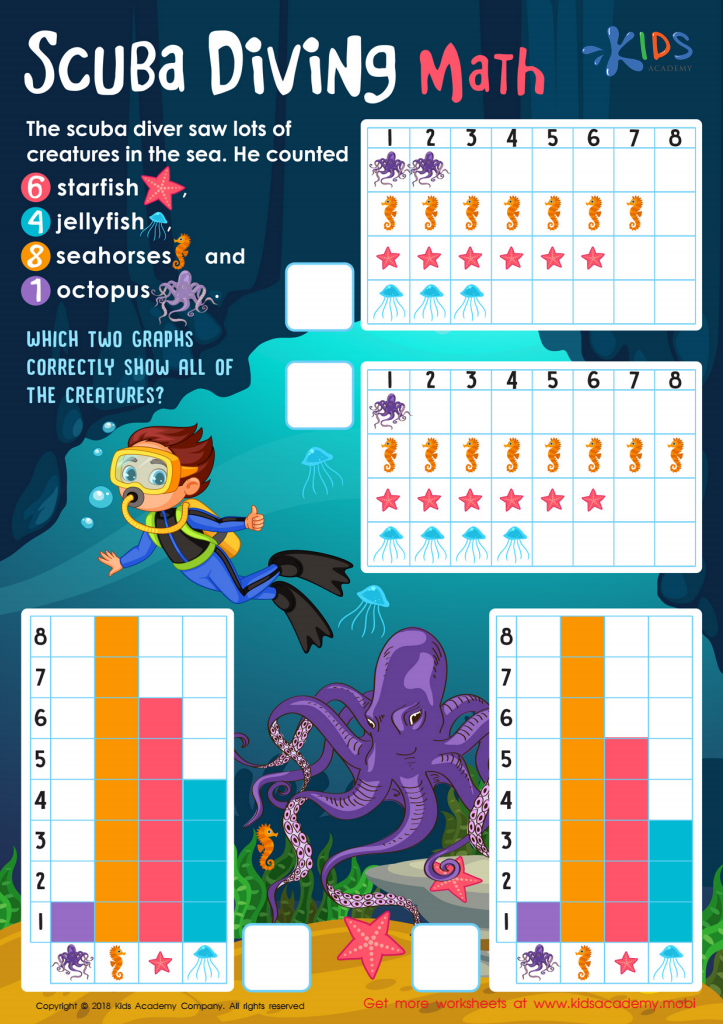

Scuba Diving Math Worksheet
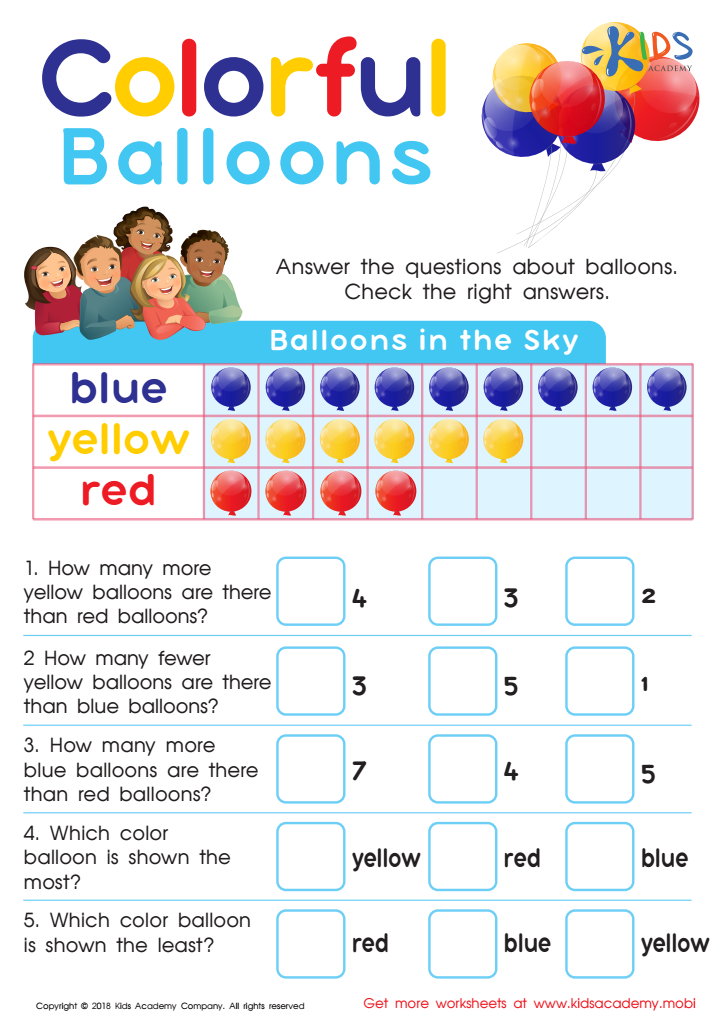

Picture Graphs: Colorful Balloons Worksheet
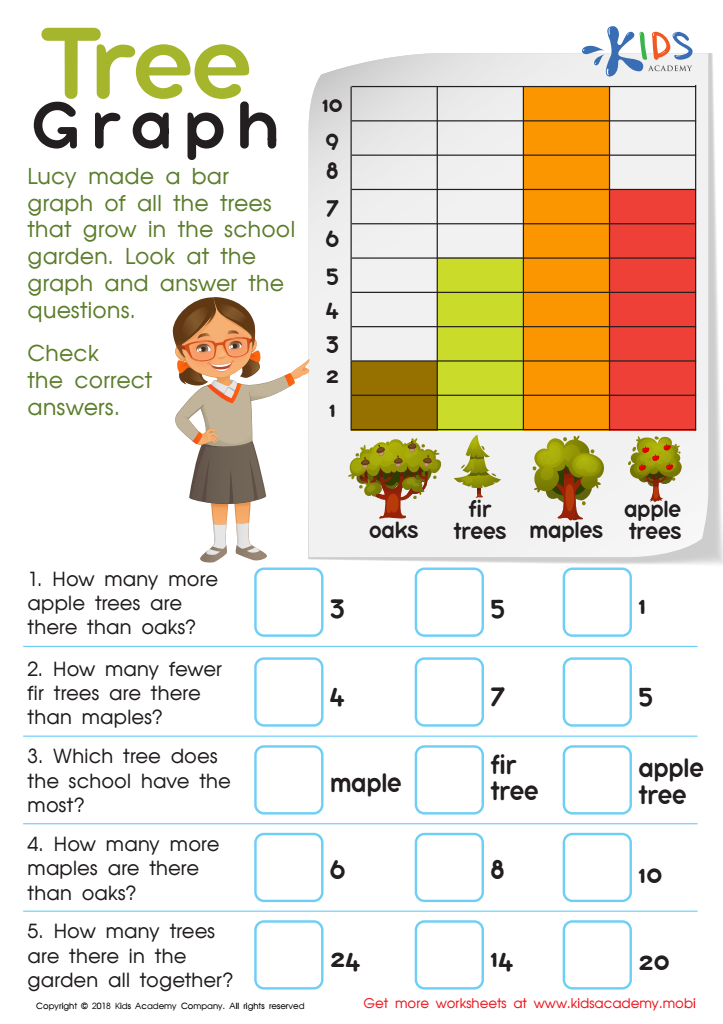

Tree Graph Worksheet
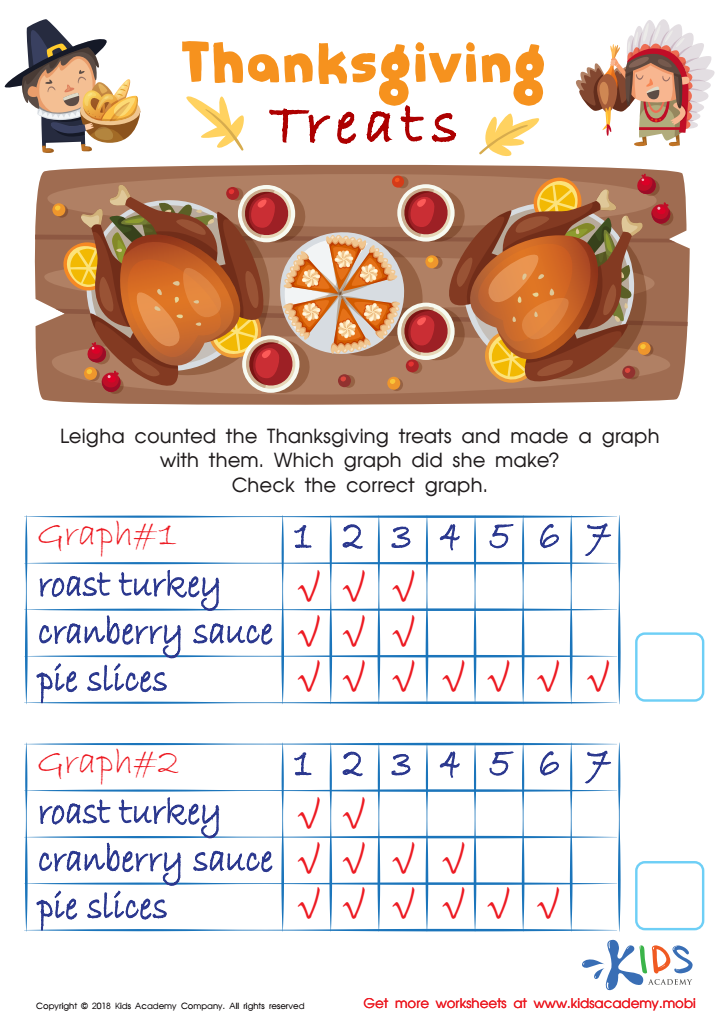

Graphs: Thanksgiving Treats Worksheet
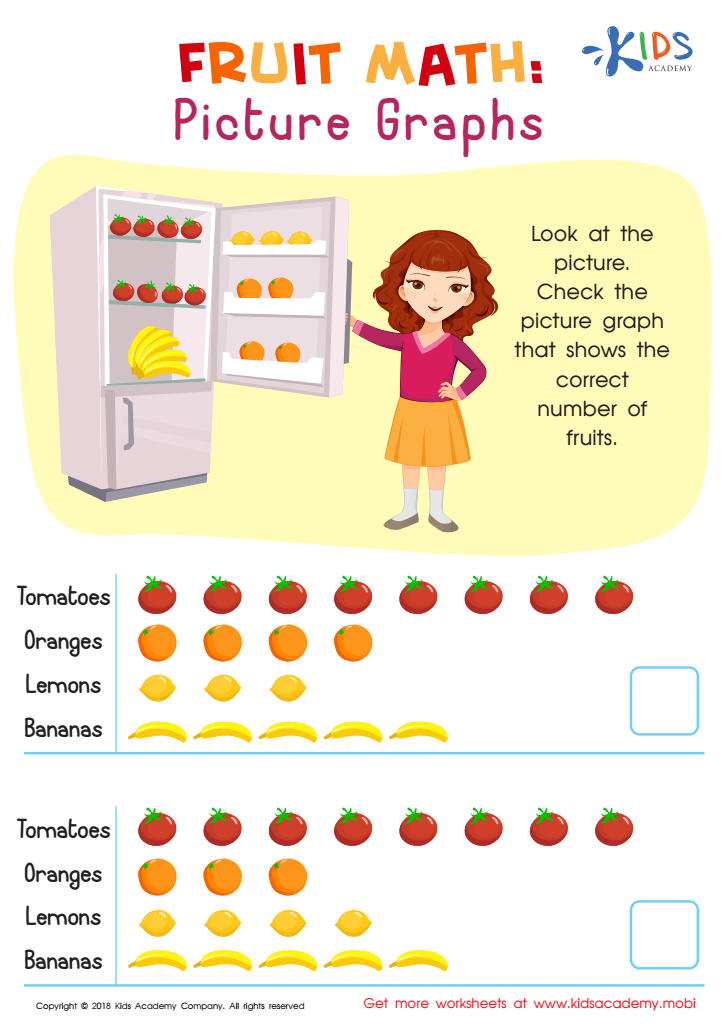

Fruit Math: Picture Graphs Worksheet
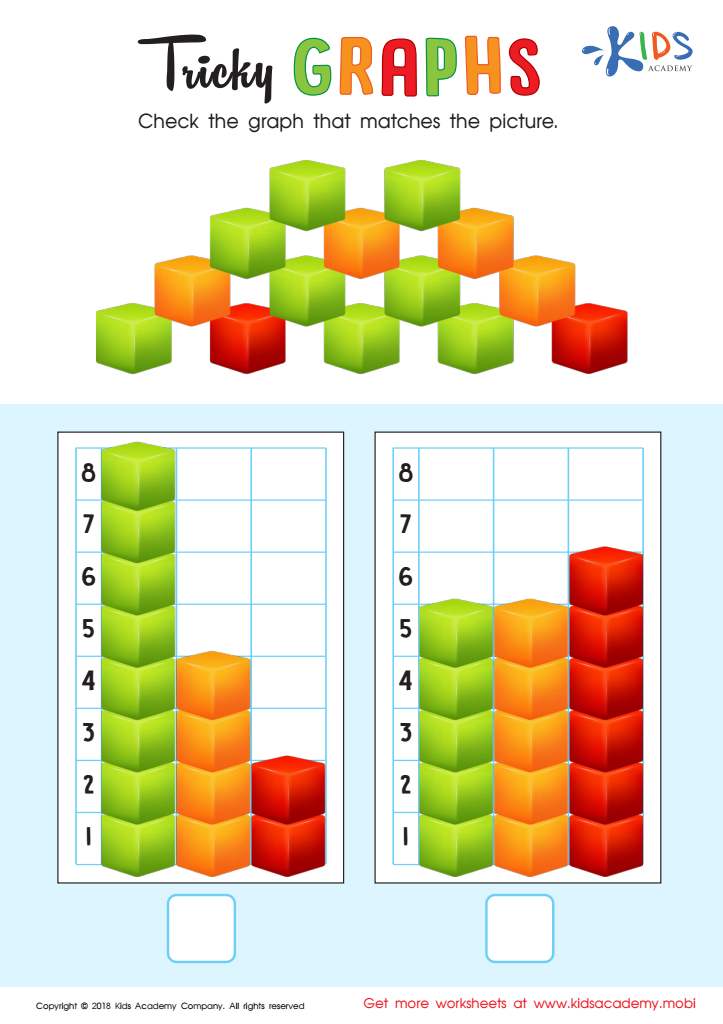

Tricky Graphs Worksheet
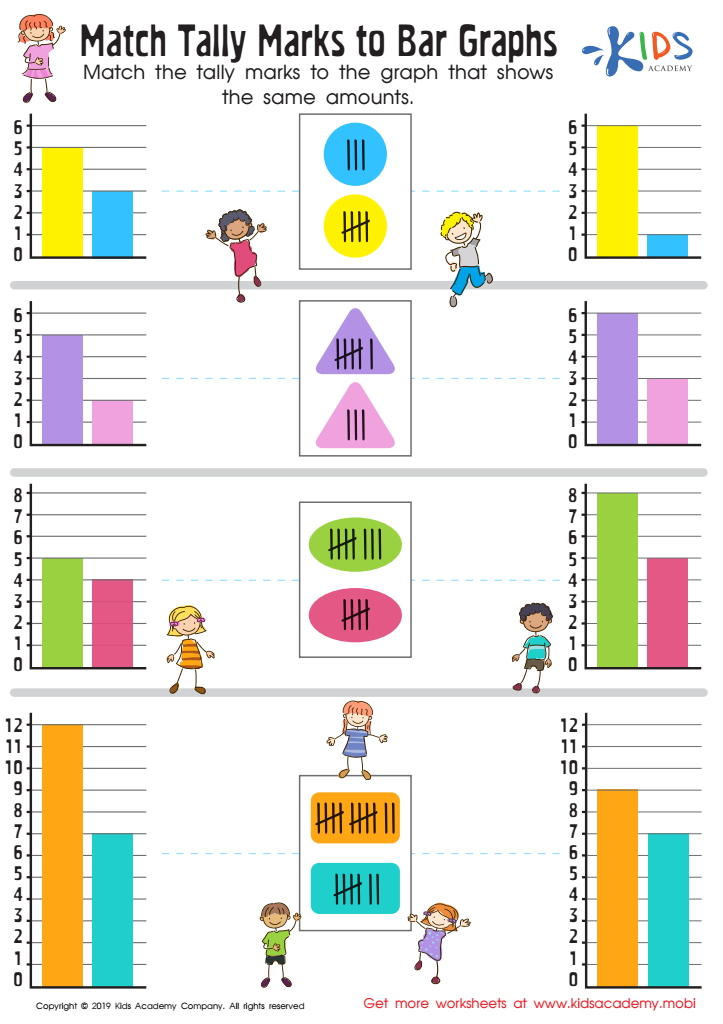

Match Tally Marks to Bar Graphs Worksheet
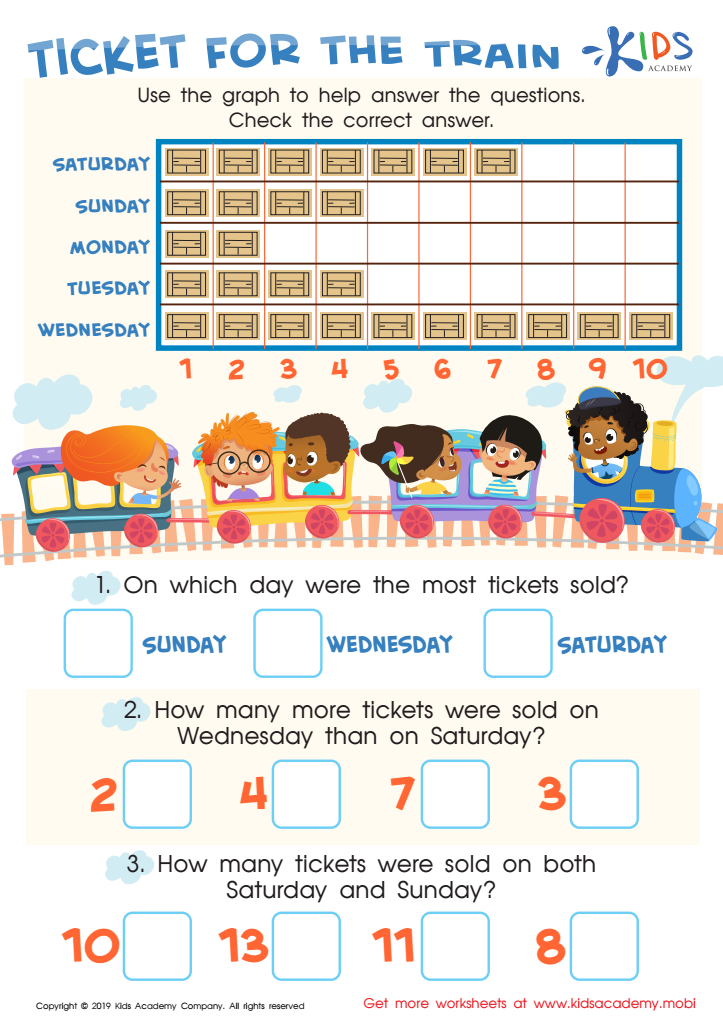

Ticket for the Train Worksheet
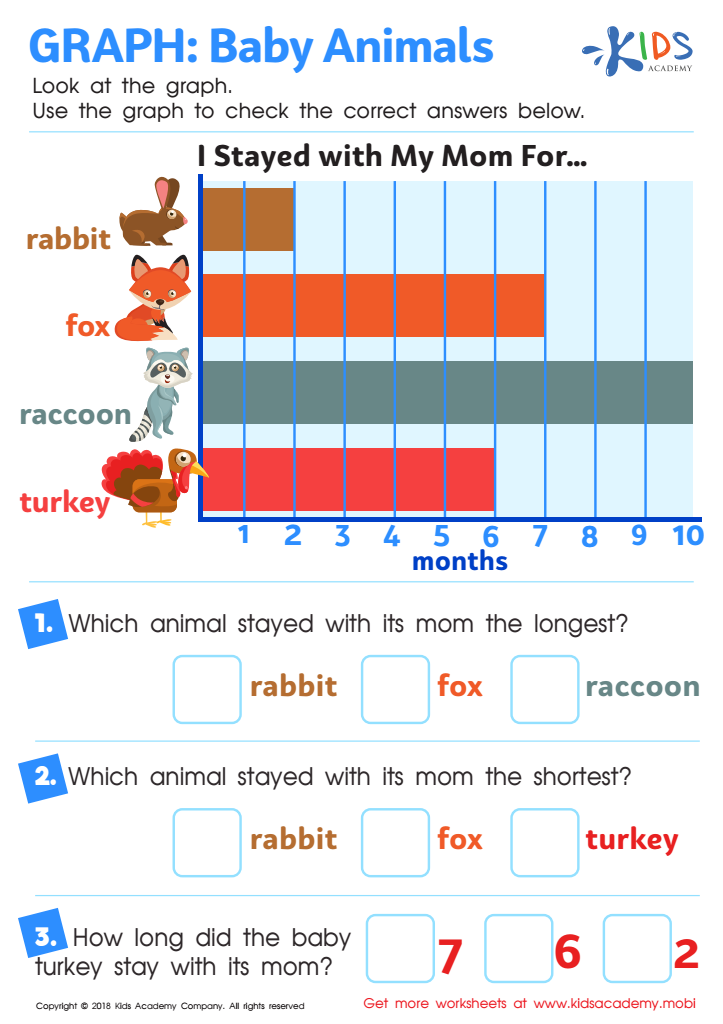

Graph: Baby Animals Worksheet
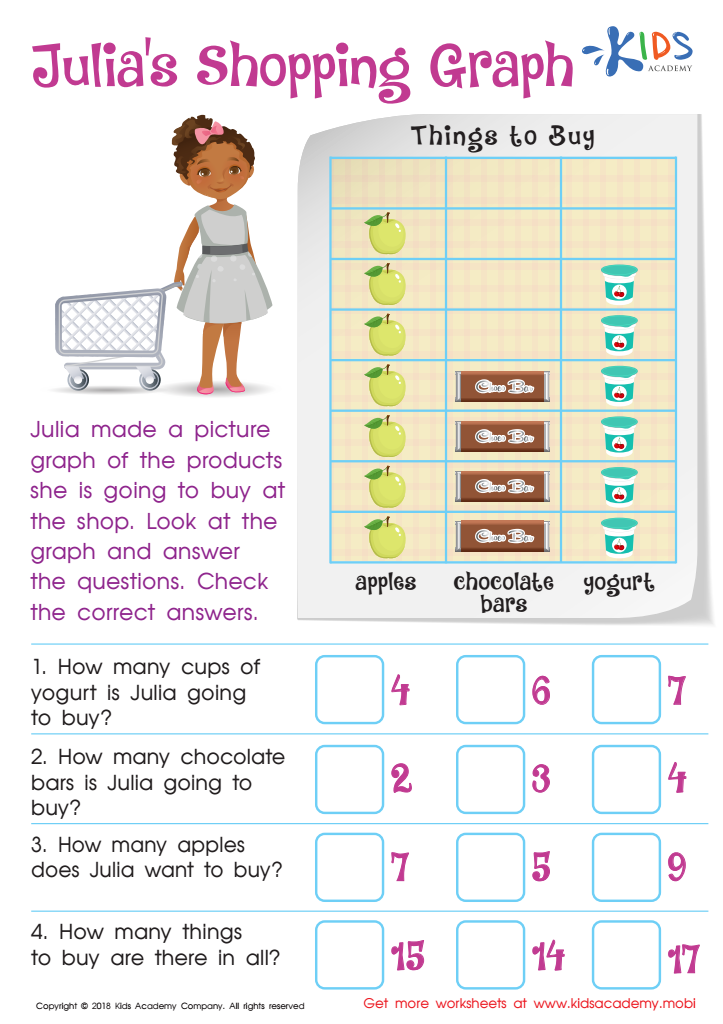

Julia's Shopping Graph Worksheet
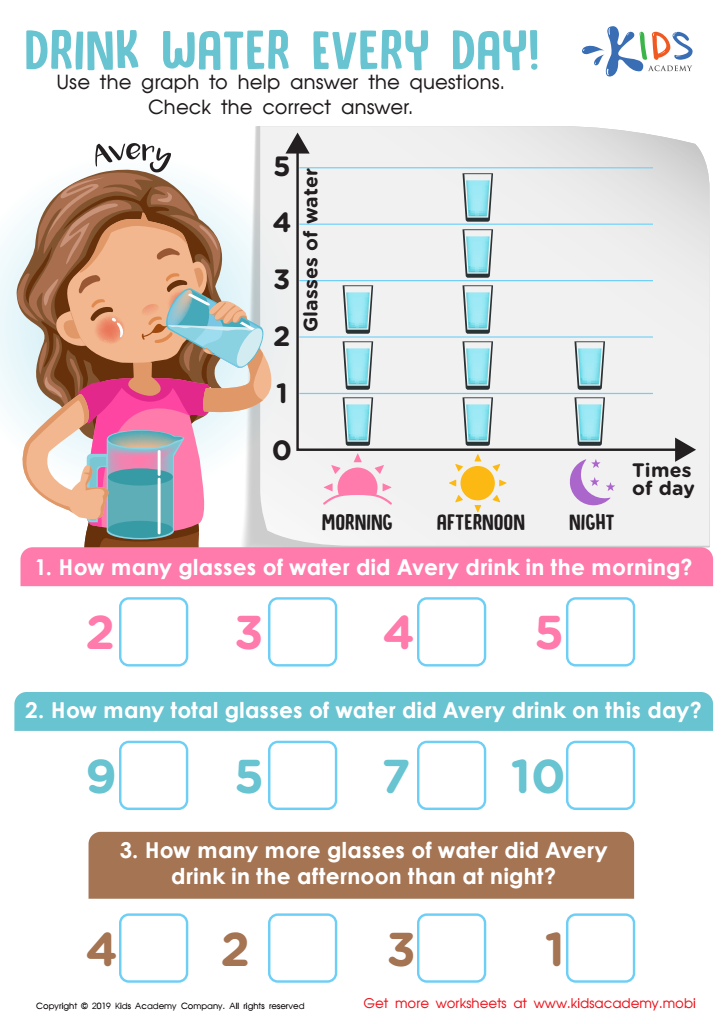

Drink Water Every Day! Worksheet
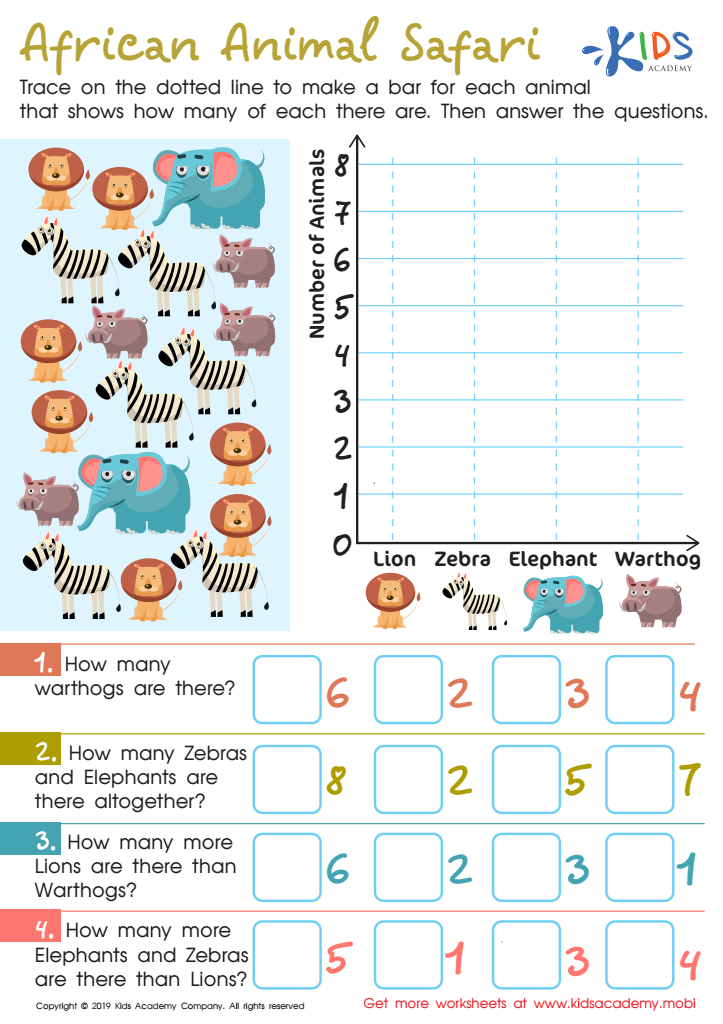

African Animal Safari Worksheet
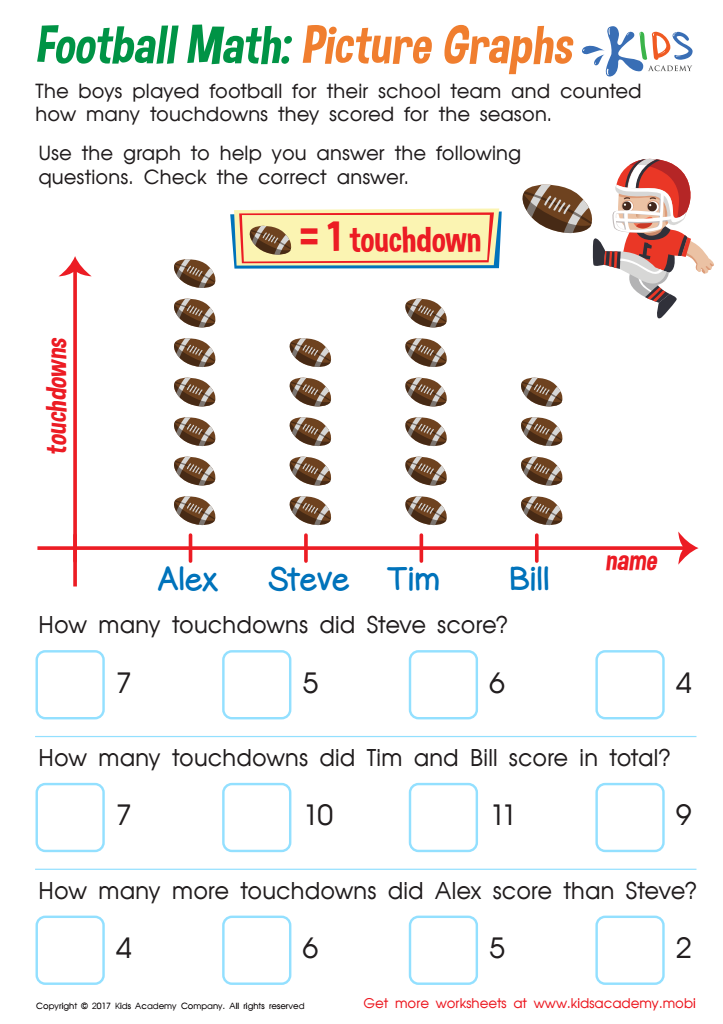

Football Math Worksheet
Introducing graphs to children ages 4-7 can significantly enhance their early cognitive development and comprehension skills. At this young age, children are naturally curious and eager to explore the world around them. Graphs provide a visual and engaging method for capturing and organizing that curiosity.
First, learning about graphs helps children develop critical thinking and problem-solving skills. They learn to gather information, categorize it, and observe patterns or trends. This early interaction with data encourages logical reasoning and the ability to make comparisons, both fundamental skills in math and science literacy.
Second, working with graphs can enhance a child's communication abilities. By explaining what a graph represents, children practice verbalizing thoughts clearly and improve their storytelling skills. This aspect substantially bolsters their language development and ability to comprehend and produce narratives in other areas of their learning.
Lastly, familiarity with graphs sets a foundation for quantitative literacy, preparing them for more complex mathematical tasks in later grades. Visual representations of data can make abstract concepts easier to grasp, fostering a positive attitude toward mathematics right from the start.
Therefore, parents and teachers should care about incorporating graphs into early education as they play a pivotal role in building foundational thinking, reasoning, and communication skills that support a child's overall learning journey.

 Assign to My Students
Assign to My Students





















